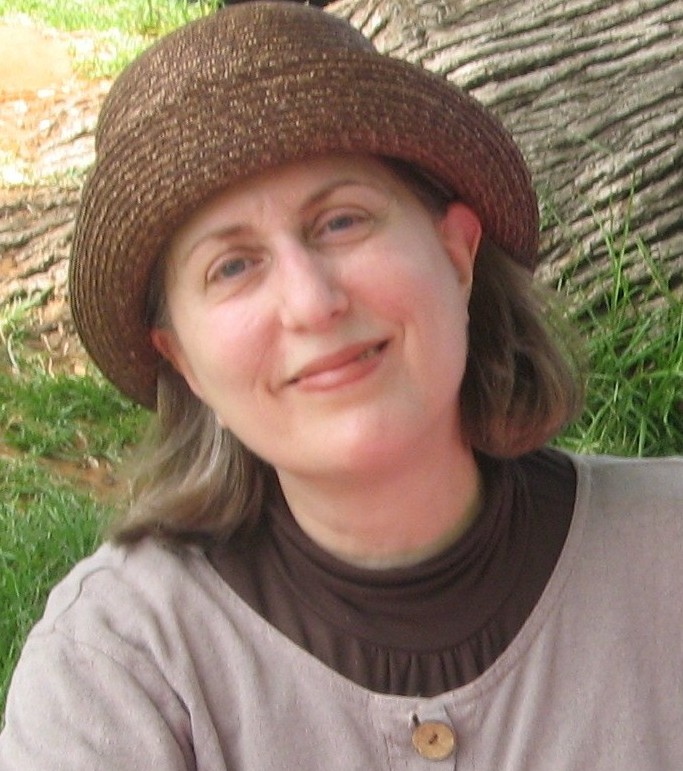Keeping the Fire Burning

Whether it’s the fulfillment of a dream or an unexpected detour, most full-time kiruv professionals go into kiruv thinking they will do it for just a few years. Some women, though, have discovered that kiruv isn’t just a short break from “real life” — it’s a long-term commitment that gives life real meaning. At this year’s Women in Kiruv (WIK) Conference, a few of them shared their stories and their secrets

grew up with a sense of idealism, a desire to help Klal Yisrael.”
“I went for just a month, to help out.”
“We never had plans to work in kiruv!”
Any time you bring together a group of more than seventy women involved in kiruv — as happened at the second annual Women in Kiruv (WIK) Conference, hosted by The Weiss Family Partners In Torah of Detroit — you expect to hear some amazing stories about Jews in far-flung parts of the world who have returned to Yiddishkeit. What’s more unusual, though, is to hear the stories of the women themselves — especially those who have made a long-term commitment to bringing Torah to decidedly secular communities.
What motivates these women and their families to stay in places where “going out for pizza” means getting on a plane? How do they keep their own standards high when they could lower them and still be the “frummest” people in town?
A few of these women told us how they stay in this demanding, difficult, but deeply rewarding job.
Kaparos, Pinsk Style
Always gracious and superbly efficient, Mrs. Chaya Shaindel Rubin doesn’t seem like the type to keep a supply of live fish in her bathtub. But the director of the Women’s Division of The Weiss Family Partners In Torah of Detroit, and an organizer of this year’s WIK Conference, (together with Program Coordinator Mrs. Rachel Leah Black), has a story that doesn’t unfold according to the unusual plan.
“I was learning in seminary in Israel when I had my first experience with kiruv. During the Pesach break I went for a month to Kiev, where Rabbi Yaakov Dov Bleich, Kiev’s chief rabbi, and his wife, Bashi, live, to be in charge of a program for teenage girls.”
She returned to Kiev a second time, and then she married Rabbi Avi Rubin. The young couple was settling into their new life in Eretz Yisrael, where Avi was learning in kollel, when Chaya Shaindel received a phone call from Rabbi Bleich. Once again he needed help during Pesach, and the Rubins decided to go. While they were there, Rabbi Bleich asked if they would consider moving to Kiev. Their answer was, “No way!”
They did, however, agree to return to Kiev to run Rabbi Bleich’s summer camp program, and the supposedly one-time commitment was repeated the following two years. At the end of their third summer, they were ready to return to Eretz Yisrael when the telephone rang again.
“This time we didn’t refuse. Rabbi Moshe Fima, the rav of Pinsk, had two schools — one for boys and one for girls. Each school had its own dorm, and he needed someone to be in charge of the dorm for the girls. He was looking for a family willing to live in the dorm, because he wanted the girls — who were Jewish, but who came from families that often had problems with alcoholism and abuse — to see what a normal frum family looked like.”
Of course, a “normal” frum family doesn’t usually take on the responsibility of being surrogate parents to some forty teenage girls, but that’s what the Rubins did for the next three years. In addition to being a dorm mother — as well as a mom to her three young children — Chaya Shaindel taught in the school and organized extracurricular activities for the girls.
“We never had time off. Our door was never shut. It’s not normal to have no privacy, but we were so focused on the job that we didn’t have time to notice. And we had tremendous siyata d’Shmaya as a couple, which I believe was because we worked so hard together to help the girls.”
She adds that despite the demands of the job, by the end of the three years, the intense experience had actually brought her and her husband much closer. “Since I didn’t have a whole community of friends — or even one really good friend who came from a similar background — my husband was the only one I could turn to for advice and support. In a different setting, where we each would have had separate jobs, that wouldn’t have happened.”
Because their three children were surrounded by forty adoring “siblings,” and she was able to spend quality time with them in the afternoon, Chaya Shaindel feels that her children didn’t suffer from the experience. In fact, they sometimes got to do things that few other Jewish children have ever done, such as the time a live fish was waved over their heads on Erev Yom Kippur!
“The first year, we couldn’t get a live chicken for kaparos, which was my husband’s minhag,” she explains. “We asked a sh’eilah and we were told we could use a live fish, instead. So on Erev Yom Kippur my husband went to the market and brought home a few fish, which we put in the basin that we used as our bathtub. At the seudah hamafsekes in the dorm’s dining room, my husband said kaparos with the girls, who were standing in a big circle. When he waved the fish over their heads, they all began to shriek!
“A few months later — when I had run out of the frozen gefilte fish we had brought from Eretz Yisrael — I asked my husband to bring me some live fish so I could make the gefilte fish myself. When our kids came home from gan and saw seven live fish in the bathtub they asked, ‘What? Kaparos again?!’”
Although everyday life was far from easy in Pinsk — her parents and in-laws graciously sent regular care packages of children’s clothing and kosher food — it wasn’t the hardships that caused the Rubins to move back to Detroit in 2009. When their eldest daughter was big enough to need friends and there weren’t any frum girls her age in Pinsk, they asked their rav what to do. He told them it was time to leave.
But even though the Rubins left Pinsk, they didn’t leave kiruv, thanks to Partners In Torah of Detroit. While Rabbi Rubin is the administrator of the organization, Chaya Shaindel is in charge of developing the women’s learning programs. These programs reach a broad spectrum of women, including students at the nearby University of Michigan, women who are not yet Torah observant, post-seminary girls, and frum women who want some pre-Yom Tov inspiration. She has also developed projects that encourage the participation of volunteers to help nonobservant women feel a part of the community.
Looking back on the path that her life has taken, she comments, “I think it’s very important that young people don’t insist that their lives have to follow a certain ‘plan’ — that they have to marry such and such sort of person, move to Israel for ‘X’ amount of years, etc. I never ‘planned’ to go to Kiev, or move to Pinsk and stay in a place where I had no friends, no kosher food, and no normal school for my kids.
“But when my husband asked his rosh yeshivah if we should go and he said yes, we accepted that Hashem was saying to us, ‘This is the best thing for you and your family right now. Put your other “plans” on hold!’ Sometimes we get an opportunity when Hashem is ‘knocking on our door,’ so to speak, and giving us a job that is larger than we think we can handle. But if we seize the opportunity, we discover that we can grow so much and gain tremendously from the experience.”
Building Bridges in the Bay Area
If a career in kiruv came as a surprise to Chaya Shaindel, one could say that it was a perfectly logical step for Sarah Felson. She was born in Berkeley, California, to baalei teshuvah parents who, in her own words, “had a passion for giving and helping other people.” After her father passed away when she was just eight years old, her mother married the well-known philanthropist Zev Wolfson, about whom Sarah says, “My step-father is a tremendous doer. I grew up with a sense of idealism, a desire to help Klal Yisrael.”
Yet for the first six and a half years of her marriage, she and her husband, Rabbi Joey Felsen, lived the typical kollel life in Eretz Yisrael. It was only in 2001 that they entered the world of kiruv.
“A donor gave us and six other couples $100,000 to start a kollel in Palo Alto, California. Although there were about 250,000 Jews living in the San Francisco Bay Area, there wasn’t a single makom Torah.”
The fact that there wasn’t any authentic Yiddishkeit shouldn’t come as a surprise to anyone familiar with the area. California, in general, is known as much for its liberal politics as for its temperate climate. And San Francisco — which has lately been in the news due to the city’s attempt to outlaw bris milah — is one of the most liberal cities in the state.
Yet according to Sarah, Bay Area Jews were thirsting for Torah and they wanted the real thing — which they found at the Jewish Study Network, the kiruv organization founded by Sarah and her husband. The Felsons’ initial three-year commitment has turned into a decade of giving to the Palo Alto community, and they’ve had the nachas of seeing the kehillah triple in size. Their shul, which first met in a basement, now has its own building. Even more important for the community’s future growth, that building is filled with children and they are in the process of building a high school for girls, Meira Academy.
But with a full schedule of teaching, responsibility for mentoring the other kollel wives, and duties as a wife and mother to six children, how does she avoid burnout?
“To do kiruv, you and your husband must have a strong relationship. My priority is therefore first my husband, then my children, and then the community. My husband and I take a walk every night after supper, and those thirty minutes are our schmooze time. A couple has to take a break and build their relationship.”
Sarah also stresses the importance of having a rav to turn to when challenges arise, especially since the longer a couple stays in kiruv the more complex the challenges become. Chinuch, for example, is a major issue and the Felsons recently had to send their eldest daughter to Denver so that she could attend a Bais Yaakov high school.
“I have complete trust in my daughter, and complete trust in the school. But we miss her. The whole family dynamic changes when a child leaves home.”
She adds that it’s also important for women to take the time to rejuvenate themselves. “If we don’t keep replenished, we won’t have anything to give. We need to do something daily — like listen to a shiur or exercise — as well as something larger every few months.”
Cleaving to Torah in Cleveland
“Neither of us had any plans to work in kiruv. In fact, when I was in the tenth grade I told everyone that kiruv was definitely not for me.”
Both Ruchi Koval — the girl who was sure she’d never work in kiruv — and her husband, Rabbi Sruly Koval, were born in Cleveland to frum families. After they were married, they went to Eretz Yisrael. While her husband learned, she worked at Feldheim Publishers. They had no intention of doing kiruv. Really.
“Then one day my husband was on a bus and the man sitting next to him told him, ‘Rav Moshe Feinstein said that just as a person is obligated to give ten percent of his income to tzedakah, a person has to give ten percent of his time to the community. What are you doing for Klal Yisrael?’ My husband replied that he was learning in kollel full-time, to which the man asked, ‘You mean you can’t find one hour a week to give to Klal Yisrael?’
“Soon afterward my husband called Aish HaTorah and started learning with two young men. The next step was Ohr Lagolah — a two-year kollel and training program for educators and communal leaders — and here we are today.”
Although the Kovals are back in Cleveland, where they founded the Jewish Family Experience, Cleveland wasn’t where they began their kiruv careers. Their first job was in Buffalo Grove, Illinois — and it was almost their last.
“I felt isolated,” she recalls. “I had to drive to Chicago so that my kids could have a playdate. I didn’t have friends, which was hard because I’m a very social person. We therefore moved to Cleveland, which has a Jewishly rich community and which is why I’m still in kiruv thirteen years later. I knew how to draw the line. It’s crucial to know yourself; to know when you can’t do something anymore, or when you can’t do something yourself and you need to delegate a task.”
In Cleveland she has found a satisfying balance between being a member of a frum kehillah and being the rebbetzin for the non-frum community. Although that means double social commitments, in addition to her kiruv work of teaching, planning events, and speaking at community functions — and her duties as a wife and mother of seven children — she has a wide support network of extended family and friends in her hometown who help out when her schedule gets too hectic.
“My husband is so amazing,” she adds. “We both cook. We both do baths. We’re a team, which is the only way to manage. My two teenage daughters also help a lot.”
Although chinuch isn’t a problem in Cleveland, the Kovals, like other kiruv families, have had to learn how to strike a balance between being a model family and being a normal one.
“My kids know they need to behave themselves when we have guests. But once a guest was clearing the table and the kids were arguing and I was embarrassed because I’m a parenting coach and, here, my own kids were misbehaving. So I said to our guest, ‘Aren’t you glad that my kids are so comfortable that they’ve allowed you a glimpse into the unvarnished truth of the Koval home?’ She replied, ‘Yes, I am happy to see the unvarnished truth.’”
Ruchi and her husband have also had to learn to have more realistic expectations. “There was a time when my husband and I were feeling burned out. We work mainly with young families, and we had heard that family kiruv can take eight years before you begin to see results. So we were working and wondering, ‘How much longer can we do this?’
“Then we discovered the Jewish Women’s Renaissance Project’s trips to Israel, which are like a Birthright trip for nonobservant married Jewish women. I started taking groups of women to Israel and all of a sudden we began to see a tremendous amount of siyata d’Shmaya. It was a tipping point. The classes began to take off. After one trip, a woman called and asked me to help her kasher her kitchen. Other women called and offered to host classes or suggested programming ideas. Some have even switched their kids to a more Jewishly affiliated school.”
Although she attributes much of the change in attitude to the power of Eretz Yisrael, she also feels that non-frum and frum Jews have two very important things in common: they both want good marriages and they want their kids to turn out right.
“As much as the world changes, it stays the same. The power of the Torah is that it doesn’t change. It still has the answers.”
Being open to Hashem’s plan, yet knowing where to draw the line; pushing yourself to grow, while allowing yourself time to relax and replenish; putting your marriage and family first, but never forgetting your commitment to the klal — these aren’t just secrets for a successful career in kiruv. They’re sound advice for any Jewish woman.
Five Essential Tips for Kiruv — and Life
The workshop topic sounded too compelling to pass up. After all, who doesn’t want some tips for “Creating a Jewish Home in a Challenging Environment”? The fact that the presenter was Rochel Goldbaum, program coordinator of Ottawa, Canada’s, JET (Jewish Education Through Torah) was another draw. And since the advice she gave was so universal, I’d like to share it with you.
Don’t be afraid Many people are afraid to do kiruv because they are concerned about what will happen to their marriage, their kids, and their own spiritual level. But people who do kiruv l’Sheim Shamayim will stay tahor (pure).
Keep the lines of communication open Kids have to know that they can come to you with questions about anything. And you have to feel comfortable with the fact that you won’t always have an answer. Sometimes a situation really is difficult — such as when a child doesn’t have anyone his age to play with. There’s no solution, but you can turn it into a lesson about not running away from something difficult, which is a lesson for life.
Ask a rav On the other hand, sometimes there is a solution — move to a place with a larger frum community. It’s crucial to have a rav to turn to when you need advice.
Learn how to set boundaries Even within the Torah-observant community lines can get blurred. Your kids therefore have to know what the standards are in your home. And so do you! If you wouldn’t wear a certain outfit to visit a rebbetzin in Monsey, you shouldn’t wear it in your town either. You shouldn’t ever lower your level of tzniyus and Yiddishkeit, even though you’d still be the frummest woman where you live.
Don’t always say “no” It’s important to not always say “no” to your kids. A way out is to give your kids a choice. For instance, if all the other twelve-year-old girls are having an elaborate bash for their bas mitzvah and this isn’t what you want to be doing, give your daughter a choice: a big party or a trip to Eretz Yisrael.
(Originally Featured in Family First)
Oops! We could not locate your form.













